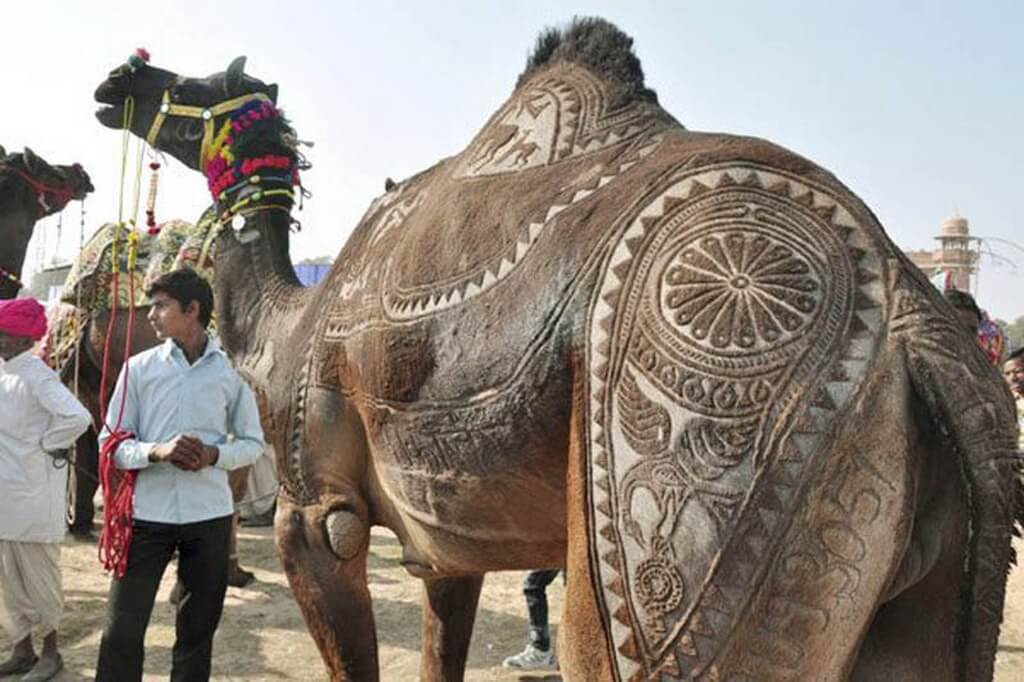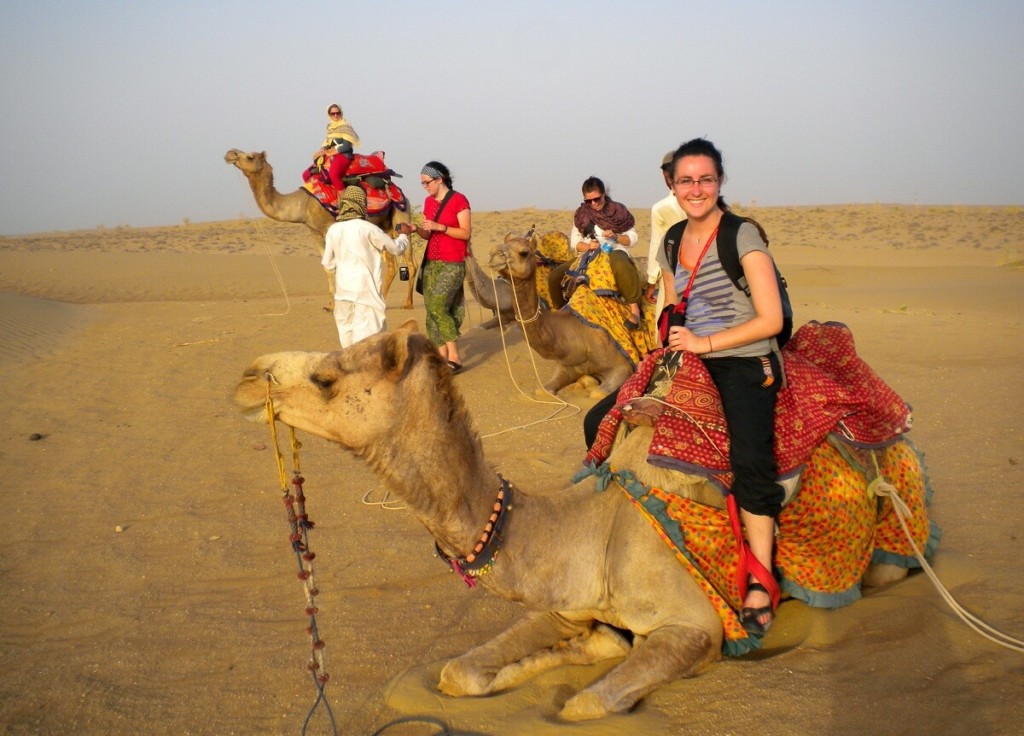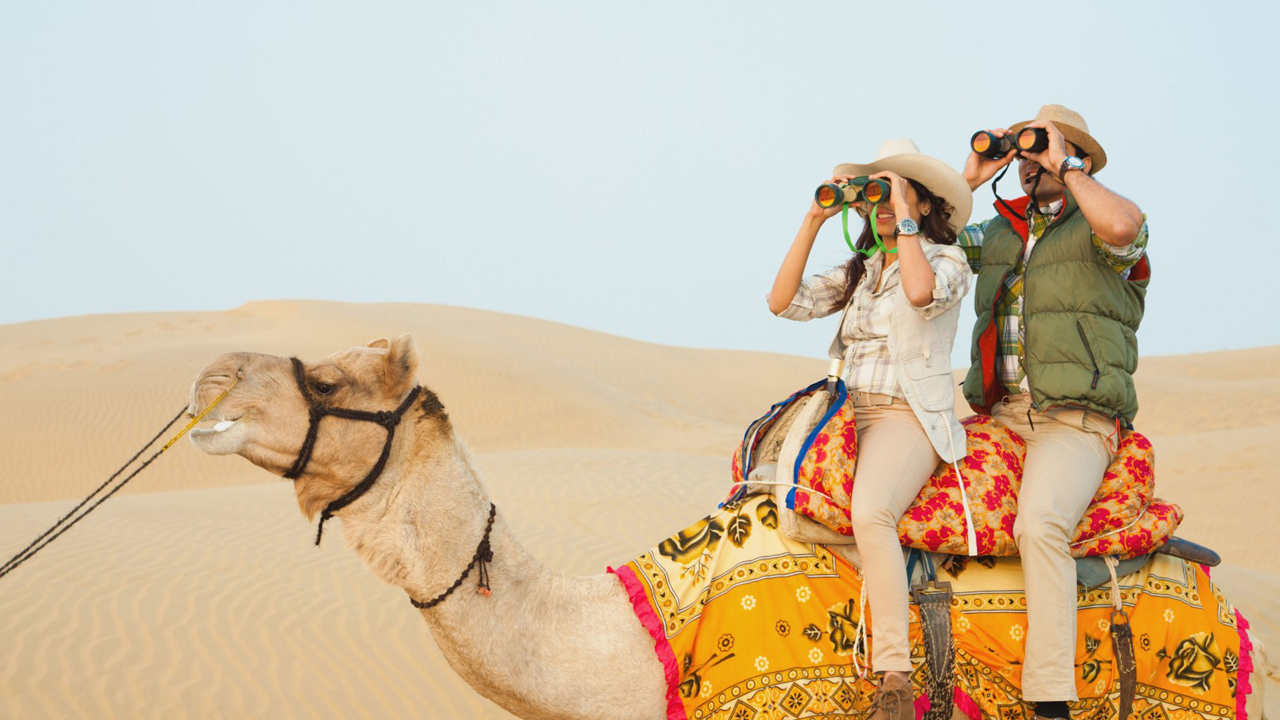Tuesday 10, March 2020. There wouldn’t be a better time to travel to Rajasthan than during festival time. The Elephant Festival of Jaipur is a unique event held annually in the capital of the north Indian state of Rajasthan. Held during Holi, the festival of colors, to herald the advent of Spring, the Jaipur Chaugan or polo field is brought alive with elephants, dancers, musicians and onlookers from all the globe. Groomed to perfection, glittering in gold, row upon row of elephants catwalk before an enthralled audience. The elephants move gracefully in procession, run races, play the regal game of polo.
There wouldn’t be a better time to travel to Rajasthan than during festival time. The Elephant Festival of Jaipur is a unique event held annually in the capital of the north Indian state of Rajasthan. Held during Holi, the festival of colors, to herald the advent of Spring, the Jaipur Chaugan or polo field is brought alive with elephants, dancers, musicians and onlookers from all the globe. Groomed to perfection, glittering in gold, row upon row of elephants catwalk before an enthralled audience. The elephants move gracefully in procession, run races, play the regal game of polo.
The echoing sound of the bankiya (trumpet) fills the atmosphere. A ceremonial procession is recreated with caparisoned elephants, lancers on horses, chariots, camels, cannons, and palanquins. The large beast is the center of attraction in the many races and beauty pageants.
Strangely, most of the participants are female elephants. The mahouts (elephant keepers) take great care to decorate the elephants – painting their trunks, foreheads and feet with floral motifs and adorning them from tusk to tail with interesting trinkets. The mahouts were employed in the Phil Khana, the department of elephant in the royal administration. They played an important role until the princely state was incorporated into the Union and the department because redundant. They, however, have continued their association with the elephants.
The game of polo forms the highlight of the Elephant Festival of Jaipur. Dressed in saffron and red turbans, the teams try to score goals with long sticks and a plastic football. Finally, the tourists are invited to mount the elephants and play Holi. Participants dance with great vigor-the excitement rising to a crescendo.
The Elephant Festival is the specialty of the state of Rajasthan. Like the Desert Festival of Jaisalmer, the Elephant Festival of Jaipur has become a major draw for the tourists during their travel and tour. Given the importance of the elephant in the sociocultural milieu of the state of Rajasthan, tourists can rest assured that they are in for some great Indian festivities and fun in Jaipur.
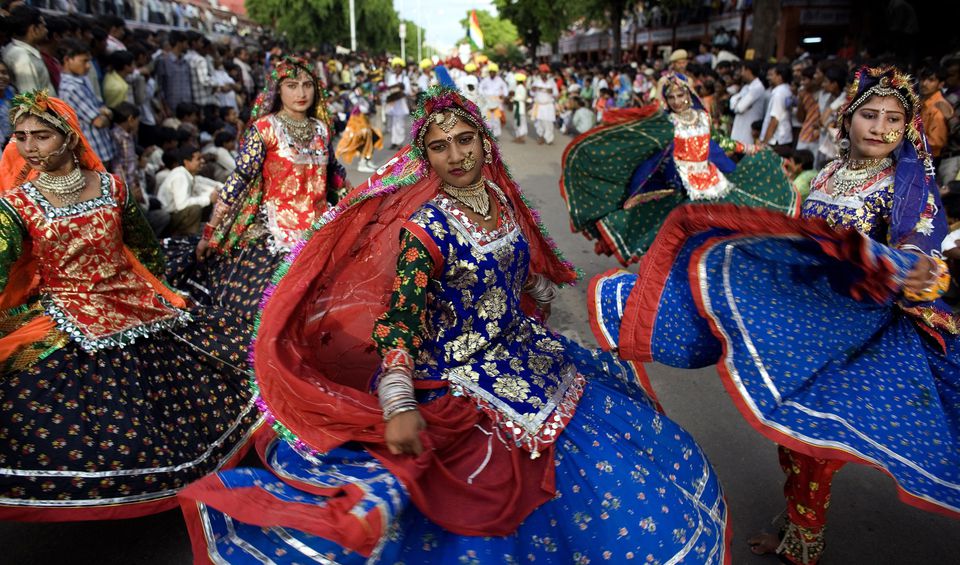
Teej Festival
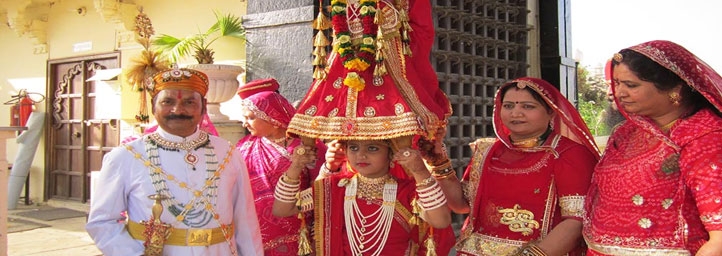
Mewar Festival
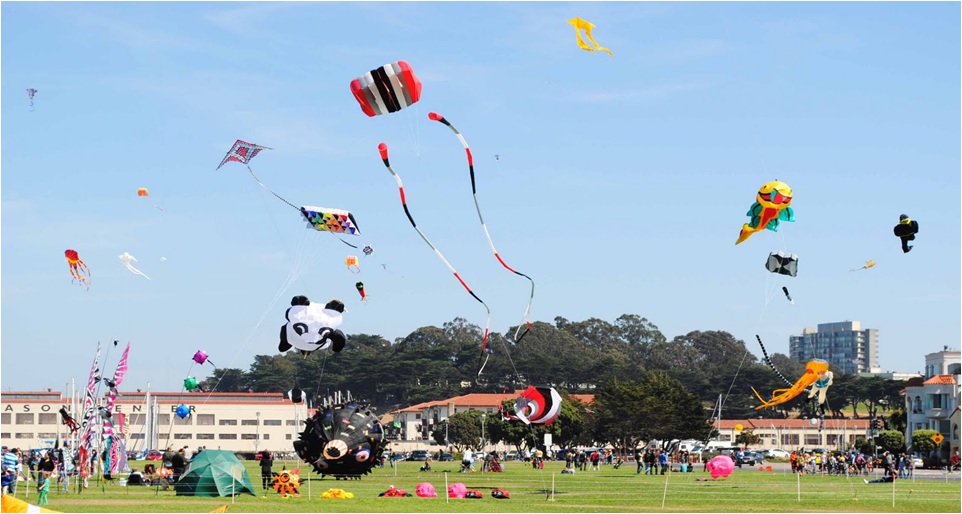
Kite Festival Jaipur
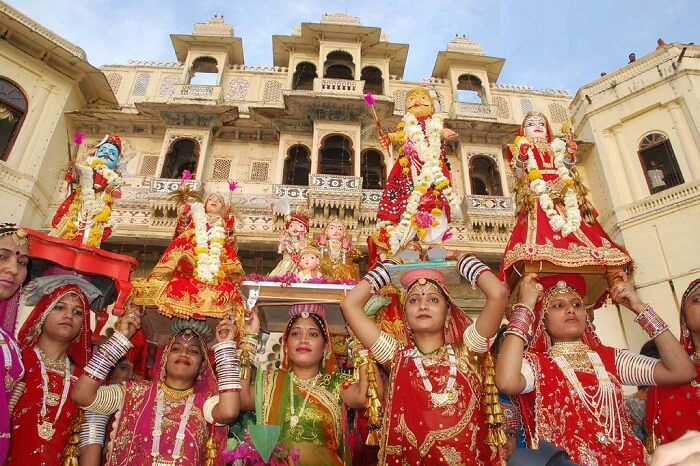
Gangaur Festival
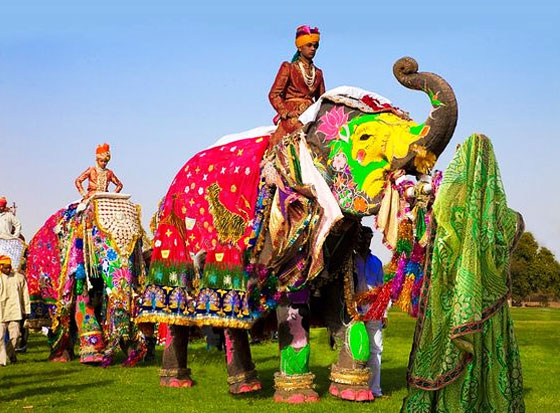
Elephant Festival

Desert Festival
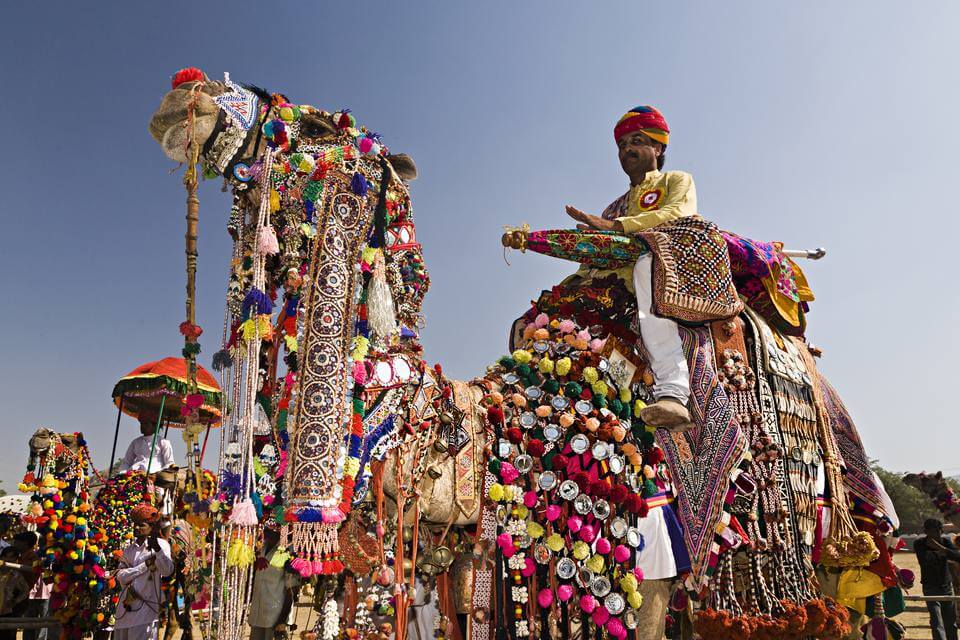
Camel Festival
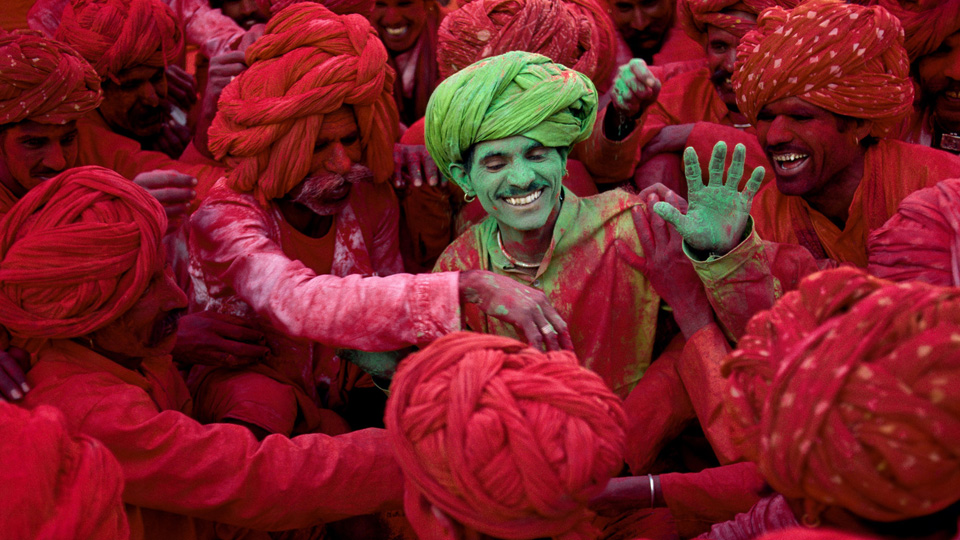
Brij Festival
-

Teej Festival
Teej is the festival of swings. It marks the advent of the monsoon month of Shravan (August). The monsoon rains fall on the parched land and the pleasing scent of the wet soil rises into the air. Swings are hung from trees and decorated with flowers. Young girls and women dressed in green clothes sing songs in celebration of the advent of the monsoon. -

Mewar Festival
The Mewar Festival is celebrated to welcome the advent of spring. It coincides with the festival of Gangaur, and has a unique charm about it. The festival of Gangaur is very significant for women of Rajasthan. It is a time for them to dress up in their best clothes and participate in the festival. The procession winds its way to the Gangaur Ghat at Lake Pichhola. Here, the images are transferred to special boats amidst much singing and festivity. -

Kite Festival Jaipur
The International Kite Festival, Jaipur is one of the most- attended festivals in Rajasthan. The most colorful festival of Rajasthan provides unlimited fun and frolic. This festival is celebrated on 14th of January every year, the day of Makar Sankranti. The popularity of the International Kite Festival in Jaipur is such that it attracts kite fliers from far off corners of the country. -

Gangaur Festival
This festival is dedicated to Gauri, a manifestation of Goddess Parvati; consort of Lord Shiva, which commences on the first day of Chaitra, the day following Holi and lasts for 18days. Gangaur Festival is the most important local festival of Rajasthan and is observed throughout the state with great fervour. The festival is celebrated by girls and married women throughout Rajasthan. -

Elephant Festival
Tuesday, 10 March2020 Elephant Festival. There wouldn't be a better time to travel to Rajasthan than during festival time. The Elephant Festival of Jaipur is a unique event held annually in the capital of the north Indian state of Rajasthan. Held during Holi, the festival of colors, to herald the advent of Spring, the Jaipur Chaugan or polo field is brought alive with elephants, dancers, musicians and onlookers from all the globe. Groomed to perfection, glittering in gold, row upon row of elephants catwalk before an enthralled audience. -

Desert Festival
The Desert Festival is a 3-day extravaganza of colour, music and festivity, held at the golden city of Jaisalmer. Gair and Fire dancers swaying to traditional tunes, a turban tying competition and a Mr. Desert Contest are a part of the fun and frolic. The grand finale is a trip to the Sam Dunes where one can enjoy the pleasure of a camel ride and even watch the folk dancers and musicians perform. -

Camel Festival
A lively and colorful event, the Camel Festival is organised by the Department of Tourism, Art & Culture, Rajasthan in Bikaner every year. January is just the right month for a desert spree, and Bikaner just the right place to see the Ships of the Desert. In the camel country Bikaner, these desert leviathans pull heavy cart loads, transport grain and even work at the wells. -

Brij Festival
The Brij Festival takes place a few days before Holi, (the festival of colours) in the month of March. Held in honour of Lord brij festivalsKrishna, this festival is marked by verve and zest. Villagers, in gay, multihued attire, can be seen singing and performing the Raslila dance (dance depicting the immortal love-story of Radha and Krishna).
